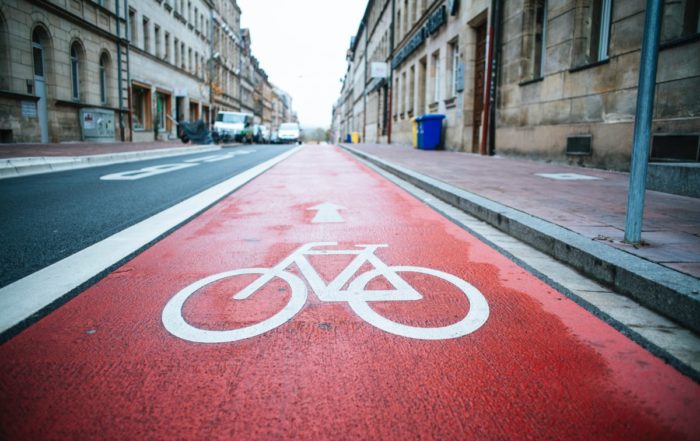The work on a manifesto should have been already started 10 years ago
Interview with Christoph Walther
Christoph Walther opens the interview with the provoking statement, that the work on a manifesto should have been started 10 years ago already. He argues, that because it takes time to build the manifesto, implement its strategies, and convince people of it. By signing the Paris-Agreement on climate change politics have somehow reached a point of no-return now. This transformed the whole sustainability issue into some kind of economic process, which means, either you reach the climate targets agreed on or you have to pay for it.
When discussing whether these sustainability goals have already found entry into the efficiency assessment of urban planning, he replied that the challenge for new assessment procedures is now to find a balance in a triangle composed of economical, societal and environmental effects (“sustainability triangle”). Sustainability comes into the equation of efficiency by finding a balance in the outcomes of all those three components on the numerator side and weight it by the cost that must be invested to reach these outcomes on the denominator side. And of course, on the input side it should not be too much of our natural resources and not too much money either. This change in the assessment does not require a complete redefinition of underlying procedures like the Benefit-Cost-Analysis, but it is needed to redefine indicators describing the target achievements and to re-calculate the monetary values. For this it might be for instance necessary to emphasize more on other ideas like the reliability of transport, rather than on travel time savings, furthermore arguing, that people seem to accept higher travel times as long as they meet their expectations.
Related to that it was also discussed the somewhat problematic attitude in society to always “fighting for the best” solution, which holds true for mobility related behaviours too. He argued,
Progress in civilization was always about thinking of the others. In this sense, he said, we must try to convince people to achieve a personal best case where the component “best for society” is always included. If people have responsibility for society and environment, they might accept a lower level of the personal best. To implement such new mind sets democracy needs target-orientated leadership.
Extending on this, he said “Democracy […] is to do the best for the whole society and this will create a lot of compromises. But people will accept a clear governance, and this is missing. And if we have this lag, self-optimizing can occupy a larger space.” For this purpose, a manifesto will bridge a huge gap as it can be a target system for politicians in the context of sustainability and mobility by providing orientation and clear statements -thus mitigating the interview’s introduction of the manifesto coming too late.
Interviewed by Jens Schade & Lisa-Marie Schaefer, TU Dresden
Related content
Low volume, high frequency
Low volume, high frequency Interview with [...]
If behaviours change, systems change
If behaviours change, systems change Interview with [...]
The concept of sustainability is connected with happiness
The concept of sustainability is connected [...]
What we need is a positive narrative or frame for a future healthy living
What we need is a positive [...]
As for the future we need a more balanced thinking
As for the future, we need [...]
COVID_19 as an opportunity to learn what we might lose or gain from a life with less mobility
COVID_19 as an opportunity to learn [...]







